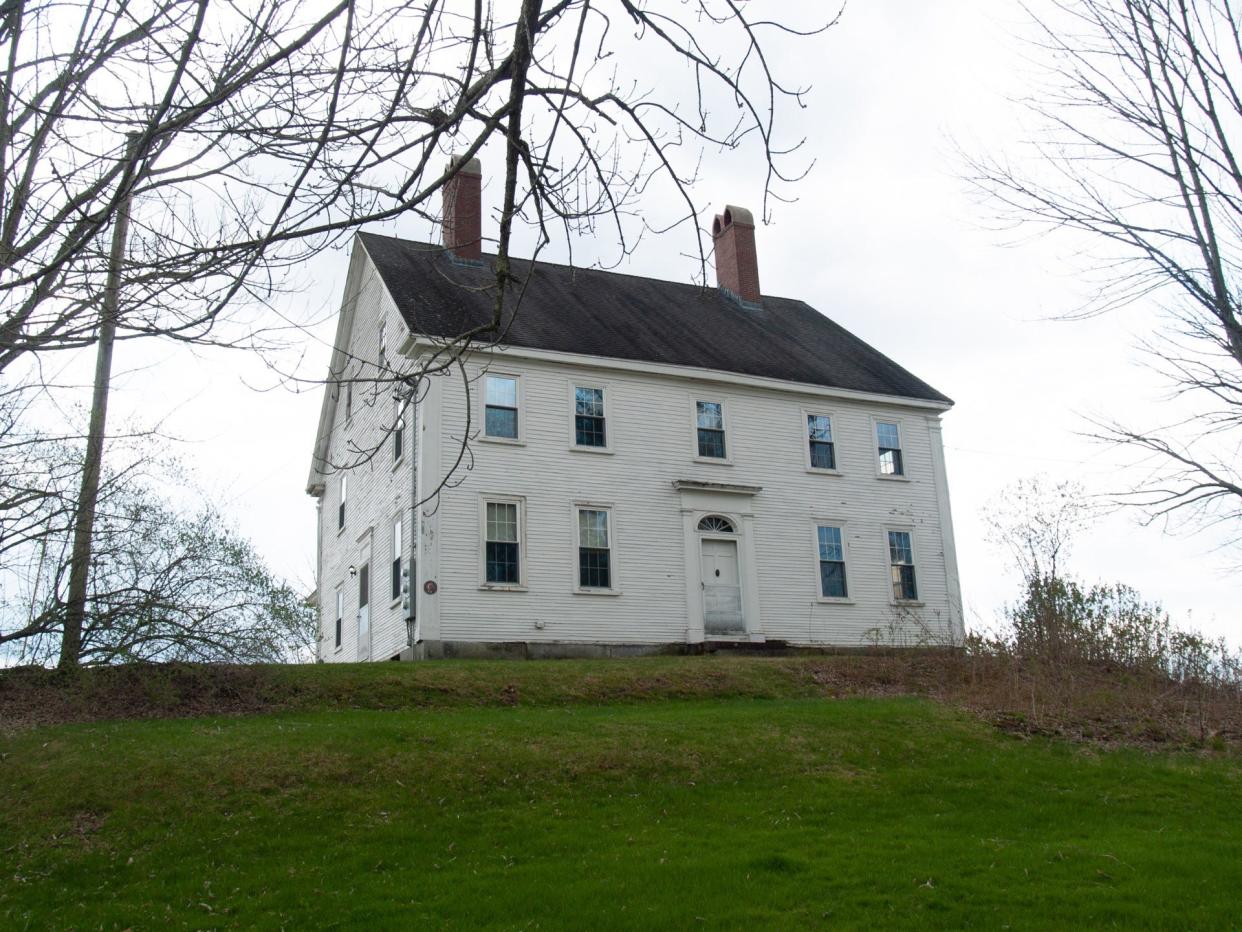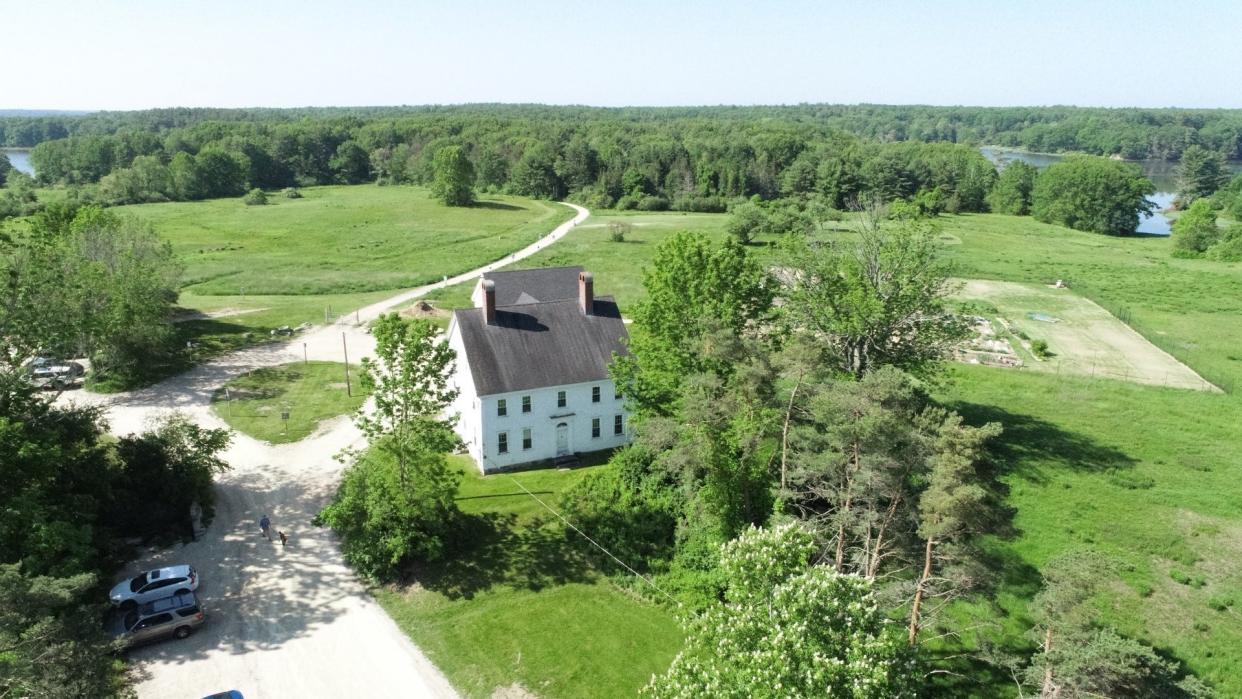Durham celebrates LCHIP award for the Bickford-Chesley House at Wagon Hill Farm
DURHAM — A $286,600 Land and Community Heritage Investment Program grant award combined with a $20,000 Moose Plate grant award means a total of $306,600 will be allocated to the rehabilitation of the Bickford-Chesley farm house at Wagon Hill Farm.
Located on Route 4 in Durham, the farm is easily recognizable by a farm wagon on a hill silhouetted against the sky.
“Good things happen when local historians work collaboratively along-side Town officials to preserve important historic structures” noted Carolyn Singer, a member of the Bickford – Chesley House Rehabilitation Committee. “We are very thankful for LCHIP’s strong support of our work.”

On land originally occupied by the Abenaki, Wagon Hill Farm was one of the first farms in the area to be settled by English colonists, and has remained in consistent agricultural use for nearly 300 years. The farmhouse and expansive landscape illustrate the agricultural history of the state, from mixed agriculture on the family farm, salt marsh farming, orchards and cider production, river transportation and commerce, to later farming for urban markets, dairy farming, poultry farming, and boarding house tourism.
When built in 1804, by John Bickford – a sea captain from Salem, Massachusetts, - the house was oriented to face First New Hampshire Turnpike, now Route 4. Since Bickford owned many farms in New Hampshire – he had tenant farmers manage most properties. This arrangement is reflected in the layout of the building which includes two cooking fireplaces – for two separate households. After Bickford’s death, his heirs began selling the farm to the Chesley family who owned the property until the mid-1960s.

“The 139-acre Wagon Hill Farm was purchased by the town of Durham in 1989 from the Tirrell family, as conservation land and to provide recreational opportunities for the residents of Durham,” said Todd Selig, town administrator for Durham. “The planned renovations for the Bickford-Chesley House will include addressing extensive foundation repairs, ongoing moisture problems, code requirements, ADA accessibility, and other structural issues needed to accommodate the building's proposed adaptive reuse which include creating a changing exhibit gallery and meeting rooms on the first floor, and a caretaker’s apartment on the second floor. Renovations will increase public use of an already vibrant site that sees thousands of visitors each year. We are thrilled to receive this very generous LCHIP grant that will get this project moving forward.”
Durham residents Nancy Sandburg, Janet Mackie, Charlotte Hitchcock, and Carolyn Singer; and Selig, Rich Reine, director of public works and Larry Brickner-Wood, chair of the Historic District/Heritage Commission worked for more than two years to ensure rehabilitation plans adhered to the Secretary of the Interior’s Standards for Preservation– to insure renovations would not negatively impact the historical integrity of the building. They first secured a planning grant from LCHIP to hire Steven Mallory, an architectural conservator. Mallory helped develop a roadmap for the future renovations while the $286,600 LCHIP grant and the $20,000 Moose Plate grant will support the physical improvements to the building estimated to be around $1 million.
This article originally appeared on Portsmouth Herald: Durham celebrates grant for Bickford-Chesley House at Wagon Hill Farm
